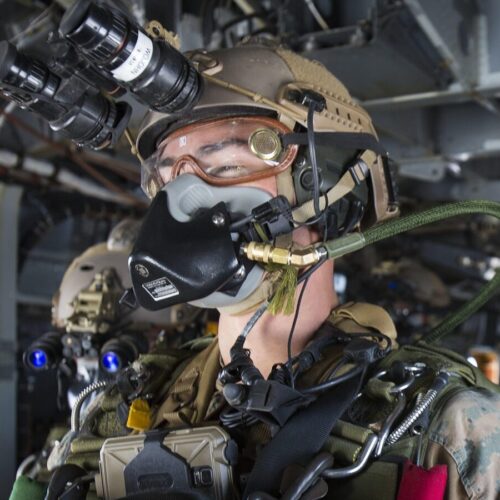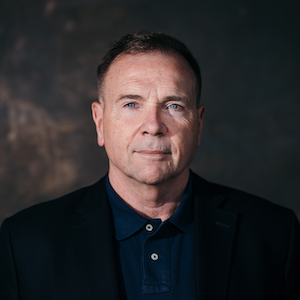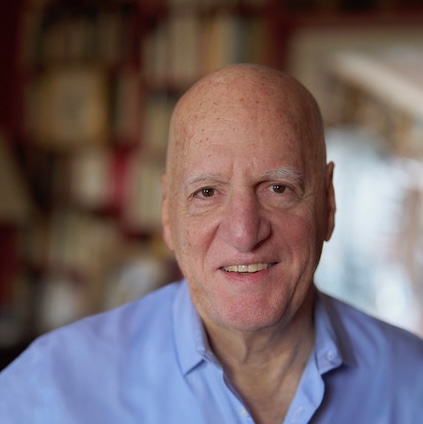“Hard power, alone, is never going to be the path to peace”
 Military force Photo: Pixabay
Military force Photo: Pixabay
In this interview Lieutenant General (ret.) Ben Hodges and political scientist Dr. David Ranan discuss the battlefields of Ukraine and the complexities of the Middle East. They illuminate why Europe must redefine its global role, confront uncomfortable contradictions, and navigate the limits of American leadership.
The weakening of Hezbollah, successful strikes in Lebanon and Iran, and Israel’s military dominance in Gaza have all contributed to Hamas’ eventual acceptance of Trump’s peace plan. Meanwhile, after decades of attempts to integrate Putin’s Russia into the international community of values, the mainstream consensus has shifted toward supplying Ukraine with advanced weapons, rearming its European allies, and imposing new sanctions. Is hard power becoming the new path to peace?
Ben Hodges: I’m not sure that Hamas has accepted President Trump’s peace plan. They have agreed to release hostages and are working to return the remains of those hostages who were killed or died in captivity. There is still a lot of fighting so we can’t yet say that there is even a full ceasefire which I think will be a prerequisite for any lasting peace. But the point of your question is valid.
Hard power, alone, is never going to be the path to peace. But hard power, or the threat of employing it, is an essential component of achieving and protecting peace, when properly balanced with diplomatic, economic, and informational power. Achieving peace in Ukraine starts with #1 a diplomatic effort resulting in a unified effort by the West, hopefully with the US included, acknowledging that Russia is the aggressor and recognizing that it is in the strategic interest of the West that Ukraine successfully defends its sovereignty, forcing Russia to live within its own borders. #2 is the employment of the full weight of the economic power of the West, including sanctions, without loopholes and which are fully enforced, which will actually change Kremlin behavior. It also includes the use of frozen Russian assets as proposed by the European Commission to help pay for Ukraine’s defense and reconstruction. And it includes the disruption of Russia’s shadow fleet vessels which are transporting Russian oil to China and India. #3 is the provision of all the weapons and ammunition and capabilities, without restrictions, that Ukraine needs to successfully defend its sovereignty, including Taurus and Tomahawks.
David Ranan: Europe is emerging from an era of hopeful belief in peaceful diplomacy and must now confront a new reality, with its own demands and shifting priorities. Hard power – once protected under a U.S. security umbrella that can no longer be fully relied – has, at least under the current U.S. administration, become Europe’s own responsibility. Still, the notion that hard power could serve as “the new path to peace” seems overly optimistic. Let us not forget that the Cold War, for all its tensions, nevertheless managed to preserve peace.
Neither the recognition of Palestine by several European countries nor Chancellor Merz’s show of solidarity with Israel seems to have influenced the course of the Middle East war—credit for the Israel-Hamas deal largely goes to Donald Trump. And while Europe remains a key donor to Ukraine, the country still relies heavily on U.S. weapons, with Trump sidelining it in his decisions. With all eyes on Washington, is Europe still seen as a significant player in the U.S. and the Middle East?
Hodges: I don’t agree that there is an Israel-Hamas deal yet…only the return/exchange of the hostages and Palestinian detainees. For there to be a lasting peace in the region, the nations of the Middle East, Türkiye, and Europe will have to be a part of the comprehensive effort.
Europe is only sidelined because it has allowed itself to be sidelined. A more forceful policy that uses all the elements of national and coalition power, to include sanctions and provision of security forces, will give Europe a ‘seat at the table’. Germany in particular must lead by example….defending principles of democracy and human rights while balancing its sense of historical responsibility. Use clear language and be consistent in actions. It cannot assume that the US, under this Administration, will take care of everything.
I do agree that the Trump Administration has done much to help bring the region to where it is now, particularly with the work it did during the first Trump Administration. But it’s going to take more to achieve the goal of a lasting peace and that means a two state solution. Europe can play a key role here.
Ranan: As Russia’s aggression intensifies, Europe concerned for its own security – has a clear self-interest in strengthening its defenses and supporting Ukraine. This is not only about helping Ukraine resist Russia but also about sending a strong message to President Putin. That is the essence of its significance. The Middle East, however, presents a far more complex challenge. Europe has long supported Israel – a stance Germany has particularly championed – but this creates a somewhat paradoxical situation, raising fundamental questions of principle: how can Europe back both Israel, an occupying power, and Ukraine, a nation defending itself against Russian aggression? If Europe were guided strictly by international law, it would instead support Palestinians resisting Israeli occupation since 1967. With Israel effectively a client state of the United States, Europe remains a secondary player in the region. Yet by moving beyond Germany’s rigidly pro-Israel position, Europe could potentially gain meaningful influence and play a more constructive role in Middle Eastern affairs.
Russia’s war on Ukraine and the situation in the Middle East are currently dominating the headlines. In your view, which other conflict or crisis is receiving too little attention?
Hodges: The US government is shifting its military priority away from Europe and apparently, possibly, the Indo-Pacific region and towards South America, especially Venezuela. I’m not against taking firm measures to stop the flow of drugs from Central and South America to the United States. Thousands of Americans every year die from Fentanyl. But Fentanyl is actually coming from Mexico, not Venezuela. So the strikes on so-called Venezuelan drug boats with the use of expensive Hellfire missiles are not actually addressing the Fentanyl problem. This is being done without Congressional oversight and without explanation of the necessity for the use of military force to the American public. This should receive much more scrutiny.
Ranan: The combined effects of war and climate change-induced famine in Sub-Saharan Africa are causing immense human suffering and staggering death tolls, including an appallingly high rate of infant mortality. This crisis is not only a profound humanitarian challenge for the Western world but also a matter of strategic self-interest for Europe. Ensuring that these countries – whose citizens understandably seek refuge in Europe – become safe and sustainable places to live is both a moral imperative and a practical necessity. While it may be challenging to convince China, Russia, and other global powers to act purely for Europe’s benefit, it should be entirely possible to forge an international pact grounded in humanitarian responsibility, uniting nations around the urgent need to save lives.


This interview took place after the event „David & Goliath: Debating War, Peace, and the Fragility of Global Order“ with Ben Hodges (on the left), Lieutenant General (ret.), U.S. Army; FBH Geostrat Consulting GmbH & Dr. David Ranan (on the right), Political Scientist & Author.
